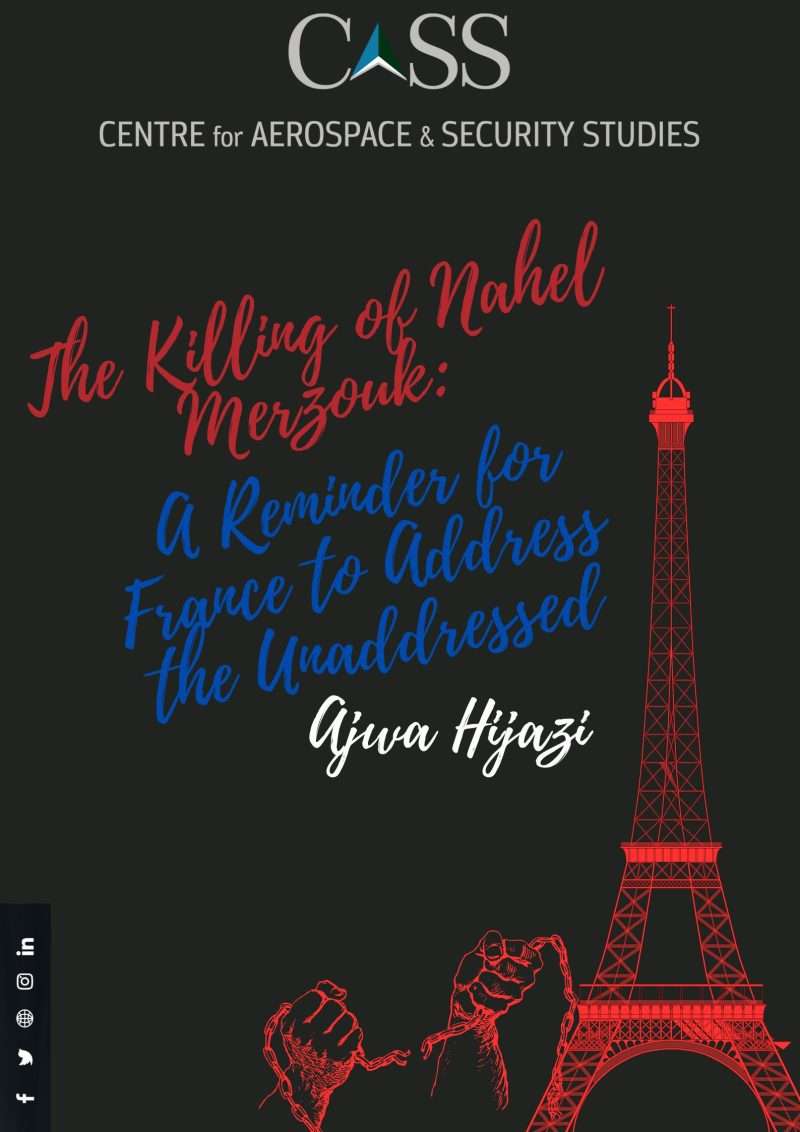The killing of Nahel Merzouk has again pushed French streets into a spiral of riots just after they were done grappling with the aftermath of the pension protests. On 27 June 2023, a teenage boy of Algerian and Moroccan descent was shot dead by the Nanterre police at a traffic stop. Initially, the police maintained that the teenager was shot because he tried to run over the police officer. However, according to the video that emerged later, the boy appeared to have been shot by the police at point-blank range. This triggered a series of protests that turned into riots, in many French cities. The protestors, along with many young people from multi-ethnic suburbs, considered Nahel’s race to be the reason behind this shooting. Amidst the policeman responsible for the killing being charged with voluntary homicide, the riots lasted for various consecutive nights causing damage of around USD 1.1 billion to businesses, with more than 3400 people getting arrested.
Although, the protests have eased down as of now, this incident needs to be seen against the backdrop of racial profiling that has been carried out by the French police over the years. Traffic stops in France have turned fatal for many individuals from mixed race background. Over the year, 15 people have been killed by police at traffic stops, out of which the majority were of Arab or African origin. Moreover, as per a 2017 study by an independent human rights group, young Black and Arab people are 20 times more likely to be stopped by police than their white peers. In the same vein, in 2021, Amnesty International along with various international human rights organisations, filed class action lawsuits against the French state alleging ethnic profiling by the state police that is carried out during ID checks. Article 435-1 of the French Penal Code allows police to use force under certain conditions including when the driver of any vehicle does not comply with the orders to stop and is posing a threat. The Article has given legal grounds to police to use force at traffic stops, which is more blatant for certain individuals than others.
According to Crystal Fleming, a professor of Sociology at Stony Brook University, the current riots are a reaction to the presence of systemic racism in French society which is linked to the country’s colonial past. France’s history of colonisation was marked by repression and forced assimilation into the French culture, especially in Africa and the Caribbean. This legacy, by and large shaped the attitudes of present-day France, even towards third or fourth-generation immigrants. Ironically, racism can’t be addressed directly because the state of France has proclaimed itself to be ‘colour-blind’ (which means that there is no census record of any race in the country). The French Republic holds the official position that there is no discrimination in the country on the basis of race or even religion or ethnicity. And yet, situation in its streets depicts a prevalent deep-rooted system of racial segregation and discrimination in law enforcement organisations, which according to the UN High Commissioner for Human Rights (OHCHR) needs to be addressed earnestly by French authorities.
Apart from manifesting wider racial fragmentation in the country, a more troubling aspect of Nahel Merzouk’s shooting is that it has also emboldened the far-right factions in France. They are demanding more hard-line immigration policies because they consider immigrant families solely responsible for the recent riots and vandalism. Nevertheless, anger and frustration due to the reckless and brutal action of the French police are being felt across the country. The people who marched after the unfortunate incident were not from any single race, as one resident of Nanterre stated.
The current unrest is another challenge that President Macron has had to encounter since his re-election last year. He is facing the grim reality of France being embroiled in complex racial divisions to an extent where the crowdfunding campaign for the family of the police officer who killed the teenager collected more money than the one which was set up for the victim’s family. Although, President Macron has emphasised drawing necessary lessons from the recent riots to mitigate and address such deep divisions, the real task before him is to ensure substantive actions that guarantee the eradication of racism present in the institutional framework of the French Police. In this context, the government needs to ensure that Article 435-1 does not get abused and the use of force by the police is proportional and limited against any individual regardless of ethnicity and race.
The root of the problem lies in the ignorance of ‘race’ as an issue, by the French state, for a long time. Consequently, it has given space to divisive ideologies to get nurtured since there was no resistance from the state. The current crisis is an opportunity for Macron’s administration to acknowledge racial divisions and take concrete measures that bridge the gap between the French state and people hailing from different racial backgrounds who deserve to feel the essence of the French ideals of Liberty, Equality, and Fraternity.
Ajwa Hijazi is a Research Assistant at the Centre for Aerospace & Security Studies (CASS), Islamabad, Pakistan. She can be reached at [email protected]
Design Credit: Mysha Dua Salman





